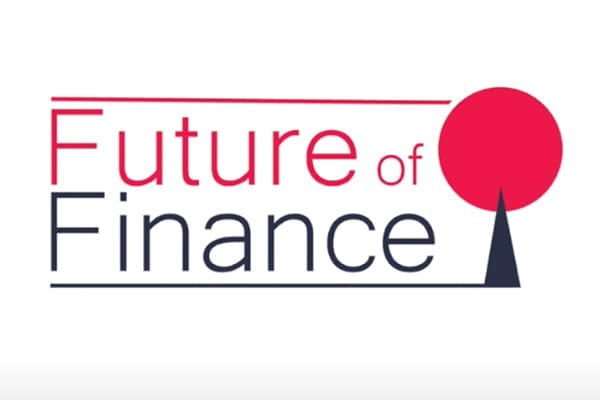BCB Group - Cryptocurrency - weekly roundup – Bank of Korea CBDC | EU Lawmakers | Bitcoin Halving

weekly roundup – Bank of Korea CBDC | EU Lawmakers | Bitcoin Halving
We saw bitcoin reporting losses yesterday morning, having ended last week with its longest weekly winning streak in nearly a year and then rising to $6,900 early today. Nonetheless, Mike Novogratz is saying this is the time for bitcoin, citing greater adoption around the globe and unprecedented actions by central banks battling the fallout from the spreading coronavirus.
Bitcoin Price has Outperformed all other Major Asset Classes over the Past Year
Sentiment around bitcoin appears to be on an upswing, in large part due to the various stimulus packages announced by governments around the world.
Bank of Korea Pilot Testing CBDC
The Bank of Korea has officially announced that they will be pilot testing CBDC for 22 months. The announcement doesn’t give any specific details, but does outline the key milestones they look to achieve through this program.
Interestingly, the announcement shared China and Sweden as examples of countries that are seriously exploring CBDC and Sweden’s detailed plans as a reference point. The Bank of Korea stressed that they will be talking and collaborating closely with other central banks that are exploring CBDC. The officials were quick to confirm that this did not mean that they will issue CBDC. They emphasised that they did not see a strong need yet to move forward with issuance. However, they wanted to be prepared in case the payment processing industry changes drastically. In a separate report, they have added that COVID-19 may accelerate the age of CBDC and digital currencies as the use of physical cash plummets from this pandemic.
EU Lawmakers Want to Create a New Regulator for Crypto ‘Blind Spots’
The European Parliament has just published a study identifying a number of legislative blind spots pertaining to cryptoasset oversight in the European Union. The report identifies stablecoins, token-based fundraising, and the threat of money laundering through crypto mining among recent industry developments necessitating a regulatory response. The report asserts that cryptocurrency mining may be used as a vehicle by criminal organisations to ‘create clean cash’: ‘Newly mined coins are by definition ‘clean’, so if someone is willing to convert them into fiat currency or other cryptoassets, the resulting funds are also clean. A first regulatory step could be to try to map the use of this technique and subsequently, if it effectively proves an important blind spot, to consider appropriate countermeasures.
Fixing Crypto’s Broken Market Structure
The dramatic price crash in cryptocurrency markets on 12th March showed that the underlying market structure of bitcoin and ethereum is broken and needs fixing, according to Kyle Samani, in this podcast.
According to Samani, excessive leverage, stale price feeds and network congestion all helped contribute to the scale of the downdraft. He suggests that the introduction of a prime brokerage system across cryptocurrency markets, together with improved liquidation engines at trading venues offering leverage, could help reduce the chances of a similar episode happening again in the near term.
Miner’s Anticipation
As the latest Bitcoin halving approaches, miners are upgrading equipment, optimising arrangements, conserving power and more in the race to dominate.
This podcast – “Bitcoin Halving 2020: Miner Perspectives,” gives an in-depth explanation of what miners are doing to maximise profits and increase operational efficiency.
Block Rewards Halving and the Rational Miner
One of the main sources of selling pressure in the cryptocurrency markets are miners that sell their newly mined coins to cover operational and capital expenditures. Thus, understanding their behaviour and the game-theoretical background is useful – especially with the Bitcoin reward halving around the corner, and the reward halvings that have already happened for Bitcoin Cash and Bitcoin SV last week.
Bitcoin Suisse Decrypt takes a closer look at cycles in the mining industry and asks the questions – when do miners capitulate, how might this affect the bitcoin market, and how can investors spot this capitulation.
What Bitcoin Did – Latest Bitcoin Narratives
Junseth, the former co-host of Bitcoin Uncensored joins Peter McCormack to discuss coronavirus, the politicisation of the pandemic and the economic impact, libertarianism, and bitcoin narratives.
a16z Podcast: How Crypto Startup School Went Remote
In February Andreessen Horowitz kicked off its very first Crypto Startup School, with 45 students from around the world gathering to learn how to build crypto projects.
But just two weeks into the seven-week course, community spread of coronavirus meant the school had to go remote. Marketing partner Kim Milosevich and Jesse Walden, former founder of Mediachain who’s helping lead the Crypto Startup School, chat with a16z crypto editor Zoran Basich in this hallway-style episode of the a16z Podcast.






